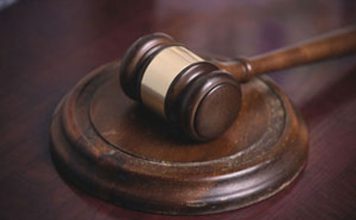GILROY
– Embattled Councilman Charlie Morales reaffirmed his decision
Monday night to remain in office despite ongoing pressure to step
down due to his third drinking and driving arrest in the last 15
years.
Monday night’s City Council session was the dais’ first meeting
since Morales pled guilty for his June DUI arrest. In what was his
first response to press questions in months, a tightlipped Morales
said there would be
”
no change
”
to his plans to remain on the city dais, despite changing his
original not guilty plea in front of a San Benito County judge
Friday.
GILROY – Embattled Councilman Charlie Morales reaffirmed his decision Monday night to remain in office despite ongoing pressure to step down due to his third drinking and driving arrest in the last 15 years.
Monday night’s City Council session was the dais’ first meeting since Morales pled guilty for his June DUI arrest. In what was his first response to press questions in months, a tightlipped Morales said there would be “no change” to his plans to remain on the city dais, despite changing his original not guilty plea in front of a San Benito County judge Friday.
Morales said a judge’s sentencing last week of 40 days house arrest and his admittance of guilt in his most recent drinking and driving case would not be enough to make him give up the seat he’s had since 1993.
Judge Steven Sanders sentenced Morales to 40 days house arrest, in which the Councilman’s movements will be monitored by an electronic bracelet starting Dec. 21.
Mayor-elect Al Pinheiro and the Councilmen who will be on the dais in December said they will not formally call for Morales’ resignation. Many of the city dais members cited a lack of public outcry and the personal nature of Morales’ predicament as reasons to let the veteran politician decide his own fate.
The city’s charter – the document that guides local government processes – requires Morales to step down only if he was convicted of a felony or absent without leave (in jail, for instance) for 60 consecutive days. Morales’ DUI was a misdemeanor.
“This does not change anything for me,” Pinheiro said regarding Morales’ admission of guilt and sentence to house arrest. “Mr. Morales has to make his own decisions as far as what he thinks is right for him and the citizens of Gilroy.”
“I think he should resign, but it’s up to the voters to recall him, and I couldn’t tell you how I’d vote on that right now,” Councilman Bob Dillon said.
City law provides a recall process for dissatisfied voters similar to the state’s. To begin a recall process, 20 percent of registered voters must sign a recall petition within a designated four-month period. For Gilroy, roughly 3,450 voters would need to sign the petition.
If enough signatures are collected and the petition gets certified, the county registrar would call an election. The election would take place on a Tuesday that falls within an 88- to 125-day period from the date the signed petition was approved.
Members of the Council that will be on the dais when Morales begins attending meetings with the monitoring device strapped to his limb acknowledged the potential for distraction. However, none said Morales’ house arrest will affect their ability to focus on business at hand.
“It doesn’t make it hard to focus on business,” Councilman-elect Russ Valiquette said. “You always have to separate business from personal life. It’s no different with this.”
Councilman Roland Velasco, who like Valiquette got elected with an endorsement from public safety officers, said he would separate business from personal life as long as Morales did.
“I think what’s important is not the jewelry a person is wearing at the dais,” Velasco said regarding Morales’ monitoring bracelet. “What’s important is the comments they are making. If Charlie is able to stay focused on the issue, then I’ll be able to respond to that and not his attire.”
Reaction is mixed among Council members regarding Morales’ job performance since his June arrest.
For Craig Gartman, there has been no change in Morales’ demeanor and participation at meetings. For Velasco, things have settled back to normal, but initially Morales appeared less outspoken on issues.
“It seems as if the first couple of meetings after the arrest he was more withdrawn from Council debate,” Velasco said. “But I don’t know if that’s my perception of if that’s true.”
Morales said Monday his performance “sure has” been the same as ever and things would remain that way “always.”
A California Highway Patrol officer arrested Morales June 29 on state Highway 25 after failing a field sobriety test. Morales, who at the time was on probation in Santa Clara County for a 1999 DUI, was pulled over for driving his car erratically. He had a blood-alcohol level three times the legal limit.
Although the Councilman’s lawyers called the judge’s verdict “a win-win resolution” last week, Morales does not get off without additional punishment. Morales must:
• Pay $540 for the monitoring device
• Pay a fine of $1,974
•Attend a multiple-DUI offender program
• Submit to a two-year driver’s license restriction limiting his driving to and from his DUI program and work, in his case City Council meetings. Morales retired Aug. 1 from his position as a youth probation officer at Harold Holden Ranch for Boys in Morgan Hill.
“This may have been a win-win resolution for the San Benito court and Charlie, but I’m disappointed by it,” Velasco said. “I am a friend of Charlie’s, and I have to work with him so this brings me no joy to make these comments, but as a former youth probation officer he needs to be well aware that there are real consequences for criminal action.”
For Velasco, the sentence “seems to be more of an inconvenience than a consequence,” and he said that he has not seen Morales take responsibility for his mistake.
“He’s admitted to making a mistake, but it’s not enough to say this is his personal cross to bear,” Velasco said. “On his first opportunity to take responsibility, he pled not guilty and sent his blood test to another lab to have it retested.”
Those results, according to a legal assistant from the law firm representing Morales, came back identical to the CHP’s .23 reading. The legal blood-alcohol limit is .08.













